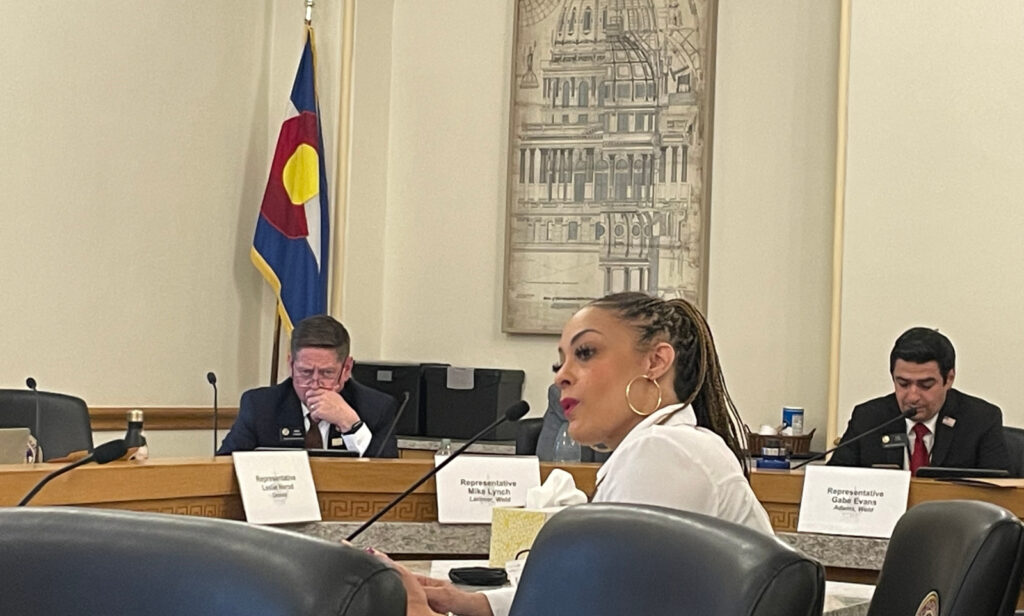By Jeffrey A. Roberts
CFOIC Executive Director
State lawmakers Tuesday killed a bill that would have codified 41-year-old case law by making the legislature’s political party caucuses subject to the Colorado Open Meetings Law, but it also would have exempted all affinity caucus meetings from the law’s notice and minutes requirements.
The General Assembly this session already made major changes to the open meetings law as it applies to legislators, letting them communicate by email and text message without it being a “meeting” and narrowing the definition of “public business.”

House Bill 24-1303 was an attempt by Rep. Elisabeth Epps, D-Denver, to bring some “consistency and predictability” to the rules governing meetings of lawmakers, she told members of the House Judiciary Committee. “We need to have rules that are simple enough that we can understand them and follow them without having to get expert advice every time we encounter a situation.”
Her bill as introduced included several provisions, some of which would have added guardrails to Senate Bill 24-157, which Gov. Jared Polis signed into law last month. The original version would have prohibited serial meetings of legislators and contemporaneous email and text-message exchanges about public business during legislative meetings.
But those provisions weren’t likely to pass, Epps acknowledged, explaining why she and Rep. Jennifer Bacon, D-Denver, offered a scaled-down version of the bill focused on caucus meetings.
Under their proposed amendments, HB 24-1303 would have included House and Senate caucus meetings of legislators associated with “each major political party” in the definition of a state public body subject to the open meetings law. Exempt from that definition would have been non-political party “affinity” caucuses such as those created by Black, Latino and LGTBQ lawmakers.
In 1983, in Cole v. State, the Colorado Supreme Court declared that a legislative caucus is subject to the open meetings law because it is a “de facto policy-making body which formulates legislative policy that is of governing importance to the citizens of this state.”
Bacon said other caucuses that bring together legislators with common interests are unlike those political party caucuses “that can actually influence policy because of the number of people who are part of those caucuses.” Under HB 24-1303, many affinity caucus meetings still would have been open to the public, she and Epps stressed, because any meeting of two or more legislators concerning public business is still subject to the law. But advance notice and minutes would not have been required.
The public and news media might hear about an affinity caucus meeting “because of common practice and habit,” Epps said. But she acknowledged, “you also might not know.”
In committee testimony, the Colorado Freedom of Information Coalition raised concerns that legislators could create non-political party caucuses on any topic of public business to avoid the law’s notice and minutes requirements “and the public and press may never know about them.”
The judiciary committee defeated the bill 8-3.
“I can’t say I’ve mastered every nuance of every bill I’ve ever voted for, but I’m struggling with this,” said Rep. Marc Snyder, D-Manitou Springs. “I’m going to vote no just out of good conscience, not knowing what I’d be voting for.”
Epps and Rep. Bob Marshall, D-Highlands Ranch, sued the House of Representatives last year over alleged open meetings violations, including lawmakers’ use of disappearing-messaging apps such as Signal. In a consent decree, the House agreed last September to bar representatives from auto-deleting messages exchanged among themselves. But the enactment of SB 24-157 terminated that agreement.
Follow the Colorado Freedom of Information Coalition on Twitter @CoFOIC. Like CFOIC’s Facebook page. Do you appreciate the information and resources provided by CFOIC? Please consider making a tax-deductible donation.




